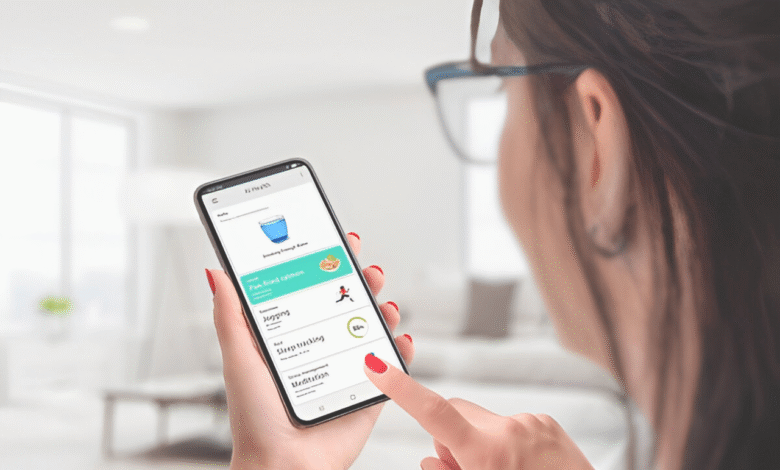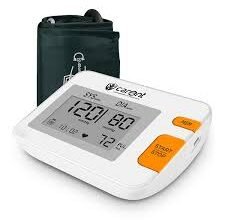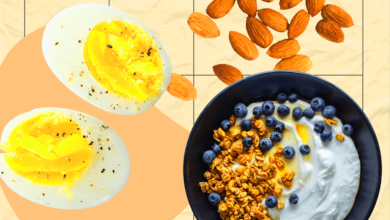Top 5 Health Apps Doctors Recommend This Year
Health apps doctors trust. Discover 2024's top 5 medical-grade apps for fitness tracking, chronic care, mental wellness & symptom checking.

Health apps have become essential tools in modern healthcare, helping users track fitness, manage chronic conditions, and improve overall well-being. As doctors increasingly integrate digital solutions into patient care, certain health apps stand out for their accuracy, user-friendly features, and evidence-based approach. Whether you’re looking to monitor nutrition, stay active, or manage medications, these apps provide personalized support backed by medical professionals.
With so many options available, choosing the right health app can be overwhelming. That’s why we’ve compiled a list of the top 5 health apps doctors recommend this year, based on effectiveness, reliability, and positive patient outcomes. From fitness tracking to mental wellness, these apps are transforming how people take control of their health one tap at a time.
Top 5 Health Apps Doctors Recommend This Year
MyFitnessPal
MyFitnessPal remains a top choice among doctors and nutritionists for tracking calories, macros, and hydration. The app features a massive food database, allowing users to log meals effortlessly. It also syncs with fitness trackers like Fitbit and Apple Watch, providing a comprehensive view of daily activity and nutrition. One of the key benefits of MyFitnessPal is its ability to set personalized weight loss or muscle gain goals. Doctors appreciate its accuracy in calculating nutrient intake, helping users make informed dietary choices. Additionally, the app offers meal plans and recipes tailored to individual health needs, making it ideal for those managing diabetes, high cholesterol, or obesity.
Headspace
Mental well-being is just as important as physical health, and Headspace is a leading app for stress relief, sleep improvement, and mindfulness. Developed with input from psychologists, this app offers guided meditation sessions, breathing exercises, and sleep stories to reduce anxiety and enhance focus. Doctors recommend Headspace for patients dealing with chronic stress, insomnia, or depression. The app’s science-backed approach helps users build healthy mental habits, improving emotional resilience over time. With features like SOS meditations for acute stress, it’s a valuable tool for maintaining mental health in daily life.
Fitbit
Fitbit is more than just a wearable it’s a powerful health app that monitors steps, heart rate, sleep patterns, and workouts. Doctors often recommend it to patients who need motivation to stay active or manage conditions like hypertension and obesity. The app provides detailed reports, helping users understand their progress. A standout feature of Fitbit is its reminders to move, which encourage sedentary individuals to stay active. The app also offers personalized fitness plans and integrates with other health apps like MyFitnessPal. For those recovering from injuries or managing chronic pain, Fitbit’s activity tracking ensures safe and effective exercise routines.
Medisafe
Missing doses of prescribed medications can have serious consequences, which is why doctors recommend Medisafe. This medication management app sends timely reminders, tracks refills, and alerts users about potential drug interactions. It’s particularly useful for elderly patients or those managing multiple prescriptions. Medisafe also allows family members to receive notifications if a dose is missed, ensuring better adherence. Doctors praise its user-friendly interface and ability to store Medical record, making it easier to share information with healthcare providers. For patients with diabetes, hypertension, or mental health conditions, this app is a lifesaver.
Ada
Smart Symptom Assessment Technology
Ada stands out as a leading AI health app that uses intelligent questioning to analyze symptoms. The app’s sophisticated algorithm mimics a doctor’s diagnostic approach, asking follow-up questions based on your responses. This creates a personalized health assessment that helps users understand potential conditions before seeking care.
Reliable Telehealth Integration
Beyond symptom checking, Ada connects users directly with licensed healthcare providers through its telehealth platform. The app can recommend whether to monitor symptoms, try home care, or seek immediate medical attention. This feature has proven particularly valuable for managing chronic conditions or getting quick professional opinions.
Trusted by Medical Professionals
Developed with input from doctors and scientists, Ada maintains a growing database of thousands of medical conditions. Many physicians recommend it as a first-step triage tool, noting its accuracy in identifying common illnesses like flu, allergies, and infections. The app also keeps a history of your health assessments for easy sharing with your doctor.
Personalized Health Tracking
Users can log symptoms over time, creating a valuable health record that helps spot patterns. Ada’s tracking features are especially useful for those with recurring issues like migraines, digestive problems, or skin conditions. The app provides data-driven insights that can lead to more productive doctor visits.
Multilingual Global Health Support
Available in multiple languages, Ada serves as a virtual health companion for international travelers or non-native speakers. Its easy-to-understand reports explain medical terms in plain language, helping users make informed decisions about their care regardless of language barriers.
Future Prospects of Health Apps Doctors
AI-Driven Predictive Healthcare Solutions
The next generation of doctor-recommended health apps will leverage advanced AI to predict potential health issues before symptoms appear. These apps will analyze patterns in your vital signs, activity levels, and medical history to provide early warnings. Doctors anticipate this will revolutionize preventive care and chronic disease management.
Seamless Integration With Wearable Tech
Future health apps will deeply sync with smartwatches, biosensors, and medical devices for real-time health monitoring. Expect continuous glucose tracking, blood pressure monitoring, and advanced sleep analysis to become standard features. This integration will give physicians more accurate data for remote patient care.
Personalized Treatment Plan Algorithms
Upcoming versions will use machine learning to create custom-tailored wellness programs that adapt to your progress. These apps will consider your genetics, lifestyle, and treatment responses to suggest optimal exercise, nutrition, and medication routines. Medical professionals value this approach for its precision medicine potential.
Virtual Reality Therapy Modules
Leading health apps will incorporate VR-based therapies for pain management, mental health treatment, and physical rehabilitation. Doctors foresee apps delivering guided VR sessions for anxiety relief, chronic pain distraction, and motor skill recovery – all from home.
Blockchain-Secured Health Data Exchange
Next-gen apps will use blockchain technology to create tamper-proof medical records you can securely share with providers. This will enable safer telemedicine consultations while giving patients complete control over their health data access and usage.
Voice-Activated Medical Assistants
Future iterations will feature sophisticated voice-AI that can understand complex health queries and provide reliable advice. These digital assistants will be able to explain test results, remind patients about medications, and even detect vocal biomarkers for certain conditions.
Automated Insurance
Coming health apps will streamline healthcare administration by automatically processing insurance claims and coordinating payments. This will reduce paperwork for both patients and doctors while ensuring faster reimbursement for medical services.
Read More: Telemedicine in 2025: Everything You Need to Know
Conclusion
Health apps have revolutionized personal wellness by putting powerful tracking tools and medical insights directly in users’ hands. The top 5 health apps doctors recommend this year provide scientifically-backed solutions for fitness, nutrition, medication management, and mental health – making professional-grade care accessible anytime, anywhere. As digital health continues evolving, these apps bridge the gap between doctor visits and daily self-care.
While these health apps offer tremendous benefits, they work best when used alongside professional medical advice. Doctors emphasize that apps should complement, not replace, regular check-ups and personalized treatment plans. By incorporating these recommended tools into your routine, you’re taking a proactive step toward better health with your physician’s guidance ensuring you get the most from today’s best digital health technologies.
FAQs
Why do doctors recommend health apps?
Doctors recommend health apps because they help patients track fitness, manage medications, monitor symptoms, and improve mental well-being with evidence-based tools and reminders.
Are these health apps secure for personal data?
Most top-rated health apps use encryption and HIPAA compliance to protect user data, but always check privacy policies before sharing sensitive medical information.
Can health apps replace doctor visits?
No, health apps are designed to support, not replace, professional medical care. Always consult a doctor for serious or persistent symptoms.
Which app is best for chronic condition management?
For chronic conditions like diabetes or hypertension, apps like MyFitnessPal (diet), Medisafe (medications), and Fitbit (activity tracking) are highly recommended.
Do these apps work without a smartphone?
Some health apps sync with wearables (like Fitbit or Apple Watch), but most require a smartphone for full functionality and real-time updates.












One Comment